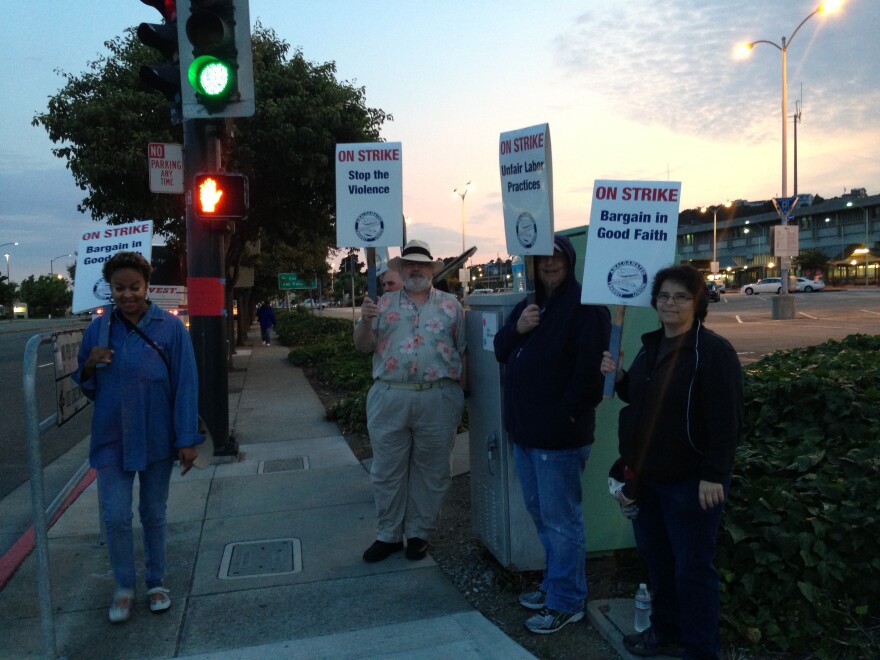The Bay Area could see its second BART strike in three months on Friday if the transit agency doesn’t reach a deal with its unions by midnight tonight. The two sides are closer together than they were back in August, but conflicting statements from the unions and management could be a bad sign.
On Wednesday night SEIU 1021 and ATU Local 1555 said the two sides were close to a deal, but BART pulled the offer. BART spokesman Jim Allison countered by saying "any suggestion that BART offered a proposal and withdrew it is categorically untrue."
Both sides are back at the table today and say they're committed to reaching an agreement.
The unions still haven’t issued a 72-hour strike notice.
“We do not want to strike, we do not want the disruption of service,” ATU president Antonette Bryant told the press on Monday.
But the unions could still strike if there’s no deal; the 72-hour notice is voluntary. Bryant --whose union represents mostly station agents and train operators-- said they’re keeping all options on the table.
Back before the first strike, which lasted four-and-a-half days during the first week of July, the two sides were barely speaking. This time, they’re trading proposals and negotiating into the night. And they’re back to respecting the gag order, so neither side has released a position since last week.
Last we heard, the unions said the two sides were about $30 million apart. But BART said the difference was more like $89 million. That’s because management wants a four-year contract, and they included a pension-swap deal as part of the the unions’ pay raise.
It’s safe to say the sides are closer together than last week. The San Francisco Chroniclereported that Thomas Hock, BART’s lead negotiator, confirmed both sides have been trading proposals.
"Things are moving," Hock said. "But I'll tell you, they're not moving very fast."
If they don’t reach a deal, there’s no way for the government to stop the strike. Governor Jerry Brown already used the 60-day cooling-off period, an option he can use only once. Now, the only sure thing that can prevent a strike is a....ban on transit strikes.
Orinda City Councilmember Steve Glazer has been pushing for a ban. The first strike was a major disruption-- about 200,000 people had to find other transportation or stay home. Glazer --who is running for state assembly-- says that mess inspired him to look into other options.
“Major transit systems in the United States have bans on transit strikes. Those areas include New York, Massachusetts, Chicago, Washington DC, and even in city of San Francisco. San Francisco Muni is banned from striking,” Glazer said. “So a ban on transit strikes is a common thing around the country. Of course we do not have that in California, which creates this consequence and the potential of BART striking and all its impacts.”
(Note: a ban on strikes didn't stop transit workers in New York from walking off the job in 2005.)
It’s too close to the deadline for a ban to help this time. But Glazer said he’s gotten a lot of support from the public -- who has been decidedly anti-union throughout the entire negotiations. A poll released last week by the pro-business Bay Area Council showed that almost two-thirds of Bay Area residents thought the unions should accept BART’s proposal. Just six percent said BART should go with the unions’ proposal.


